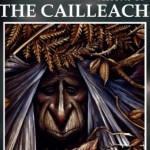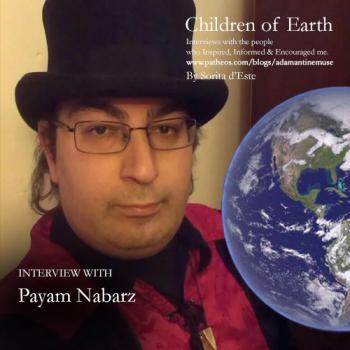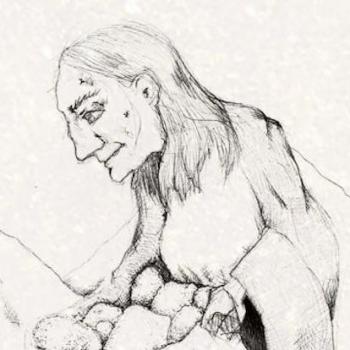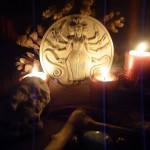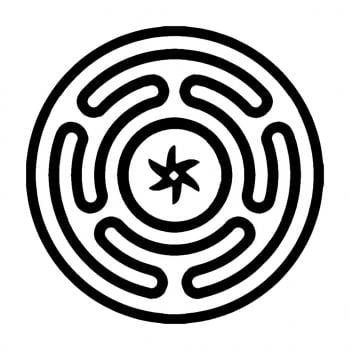
Aleister Crowley wrote in his 1919 work Law of Liberty:
“Keep pure your highest ideal; strive ever toward it,
without allowing aught to stop you or turn you aside…”
This is, of course, sound advice and an admirable axiom to live by. Many readers reading this might have recognised the words for being a famous line from a better-known piece of prose, or at least be thinking …’that sounds familiar’. In the much later Charge of the Goddess, these words were incorporated by the author of the Charge. This is where it all gets a bit confusing, as we are told that the version of the Charge using these words was a rewrite by Doreen Valiente, which she claimed was her effort to remove the Crowleyanity from an earlier version. A strange oddity then that the most popular version of the Charge, and the version ascribed to Valiente’s write contains so many quotes adapted from Crowley, but that is a subject for another discussion!
In this article, I am going to explore only the invocation used in the ceremony of Drawing Down the Moon. [For readers interested in a full textual analysis of the Charge (showing where the words were taken from) you will find it in my book Wicca: Magickal Beginnings – it might also be a topic for a future blog here. ]. Like much of the Charge and other ritual components of Wicca, the Invocation used in the ceremony of Drawing Down the Moon is in fact borrowed from earlier sources.
As a child, my Italian grandmother, my Nonna, introduced me to the work of Percy Bysshe Shelley. This was part of my childhood, instead of nursery rhymes I had Shelley, Nash, Wordsworth and Byron. And Shelley’s Song of Proserpine was always a favourite:
“Sacred Goddess, Mother Earth,
Thou from whose immortal bosom
Gods and men and beasts have birth,
Leaf and blade, and bud and blossom,
Breathe thine influence most divine
On thine own child, Proserpine.”
So when I first experienced the ceremony of Drawing Down the Moon, I immediately recognised Shelley’s influence on the invocation.
For those unfamiliar with the ceremony of Drawing Down the Moon, it is a pivotal part of Wiccan liturgy. During the Drawing Down, the High Priest invokes the Goddess of the Wicca into the body of the High Priestess. He does this with a combination of words, gestures and intent. The words used, now widely published, exists with slight variations, this being one popular published version:
“I invoke Thee and call upon Thee,
Great Mother of us all, Bringer of all fruitfulness,
By seed and root and bud and stem,
By leaf and flower and fruit,
By life and love do I invoke Thee
To descend into the body of this Thy servant and High Priestess.”
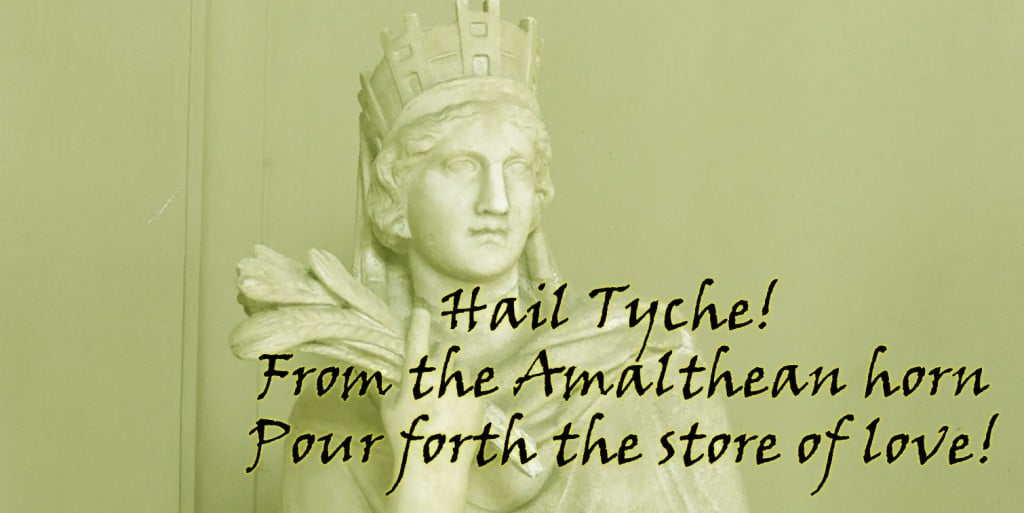
“By seed and root and stem and bud and leaf and flower and fruit do we invoke Thee”.
The concept of the Mother of us All is one which might have been used as a reference to the Great Mother Goddess, or indeed the Wisdom Goddess. The phrase is used, for example, by MacGregor Mather in his 19th-century work The Kabbalah Unveiled, as a reference to the Shekinah – the female bride / wife of God, which many believe equate to the Holy Spirit in Christianity, as well as the concept of Sophia ‘Divine Wisdom’:
“From Her do they receive their nourishment, and from Her do they receive blessing; and She is called the Mother of them all.”
Following the initial invocation above, the High Priest speaks again and continues with the ceremony of Drawing Down the Moon. In this part, he uses a verse which is sometimes referred to as the Hail Aradia speech. Wiccans and others familiar with the ceremony will know this well, and will at once recognise that whoever wrote the prose borrowed it very directly from the work of Crowley.
In 1907 Crowley published a book called Rodin in Rime, which was presented to the sculptor Auguste Rodin during a visit. It featured illustrations based on the work of the artist, with whom Crowley had spent some time. The poem the Hail Aradia speech is borrowed from is La Fortuna, an invocation to the Greek goddess of Fortune, Tyche.
“Hail Tyche! From the Amalthean horn
Pour forth the store of love!
I lowly bend before thee:
I invoke thee at the end
When other gods are fallen and put to scorn.
Thy foot is to my lips; my signs unborn
Rise, touch and curl about thy heart; they spend
Pitiful love. Lovlier pity, descend
And bring me luck who am lonely and forlorn.”
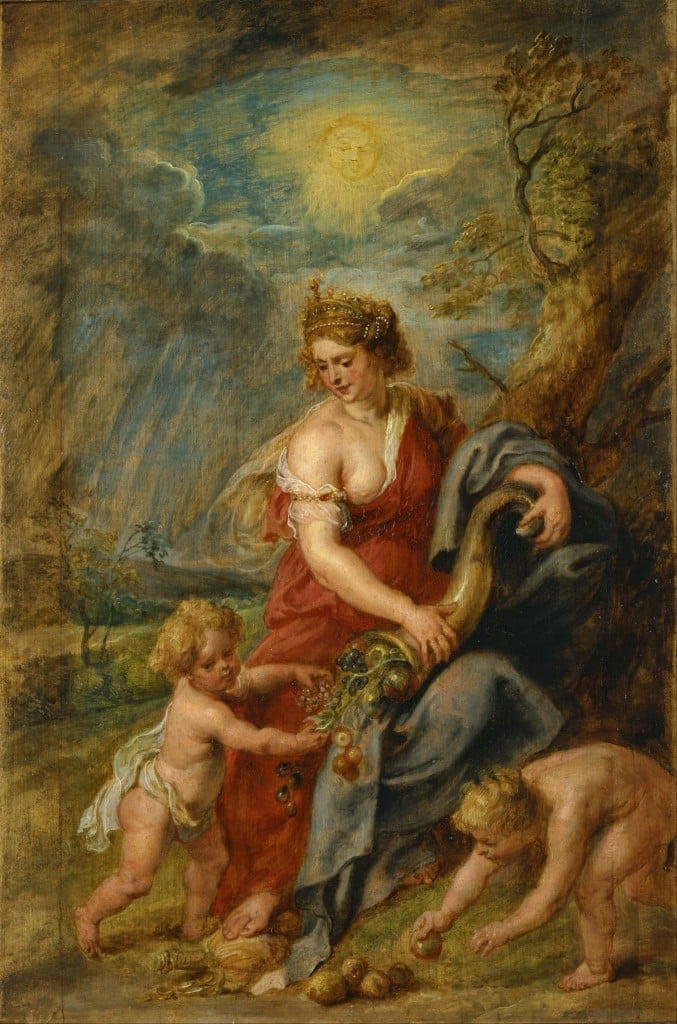
The Amalthean Horn is the Cornucopia, the horn of plenty, usually depicted as a horn-shaped basket overflowing with abundant produce. It originates with the story of the nymph Amalthea who was given an enchanted horn by Zeus when he was an infant after she gave him some goat’s milk to drink. Today, within the now well-established community of people who recognise and honour the gods and goddesses of our ancestors, we truly have a horn of plenty when it comes to inspiration and information. We can be generous with what we know and experience, and help others to do the same by sharing our work and knowledge with others.
These invocations clearly illustrate the importance of Aleister Crowley’s work in modern Pagan Witchcraft and Wicca – and even in the Goddess Spiritual traditions, where invocations and phrases from Wiccan ritual are often borrowed. If we are going to “Keep pure your highest ideal, strive ever towards it …. “ we need to be honest and informed about where the words we speak in our spiritual work originates.
You may argue that it doesn’t matter, after all, each generation borrows from that which goes before. But when we know what we are borrowing from, when we are aware of how the words were infused, we can use that to decide if we continue to use the phrases. We can build strong foundations with the knowledge that we have of the past, and if our aims are to strive to our highest ideals, we should and can give credit where credit is due. We can be honest with ourselves and not repeat the mistakes of our predecessors – after all; we will make our own mistakes!
Further Reading:
Wicca: Magickal Beginnings, Sorita d’Este & David Rankine, 2008
Law of Liberty, Aleister Crowley – online at http://hermetic.com/crowley/libers/lib837.html
Gardnerian Book of Shadows – online at http://www.sacred-texts.com/pag/gbos/gbos13.htm
Auguste Rodin – online at https://en.wikipedia.org/wiki/Auguste_Rodin


